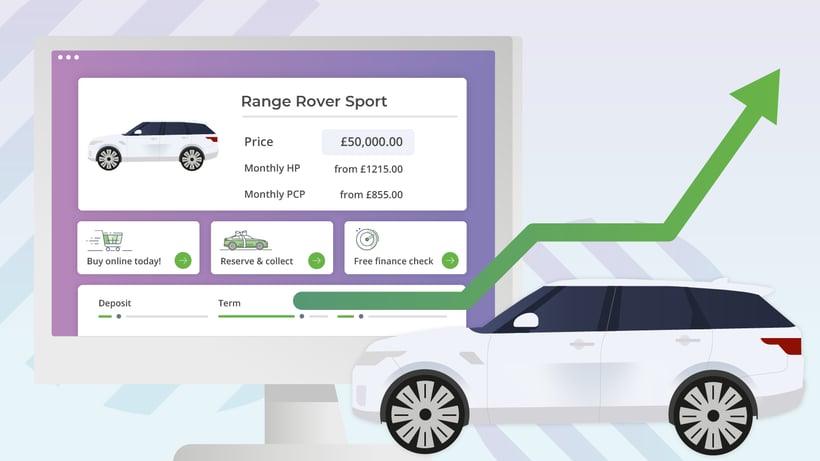Have you ever considered how you're showcasing cars online? And how they could reflect your business to your customers?
Our Better Buying Journeys white paper highlighted the importance of strong images and video in online retail, but is that all it takes to win the trust of customers?
In this post, we’ll look at tips you can follow to help build trust online, so customers are ready to buy as soon as they arrive in the showroom.
Why trust is critical when selling a vehicle online
The online experience has truly transformed the vehicle buying journey. And thanks to the internet, your customers have access to all the information they could ask for.
This means questions they'd save for the showroom, are being answered before they even come in.
Research from eBay Motors group shows that people spend on average 40.5 days researching their next vehicle.
This data is from 2019, in a pre-pandemic economy, before the mass digitisation of retail.
The number of days is likely to have increased post-pandemic as online shopping becomes second nature.
In those 40+ days, customers are watching videos, reading forum posts, and even posting to social media.
Some will spend so much time researching, they know almost as much as a qualified salesperson.
So, in an age when customers have more options than ever, it's essential to gain their trust as early as possible - and we do that by being transparent.
Are you as transparent online as you are on the forecourt?
One of the great things about showcasing stock online is the control you get.
You get control over how vehicles are presented, and what photos the customer sees.
Many consumers will be browsing on smaller screens so having good photos counts.
Things are a little different on the forecourt.
Your customers can get up close to your vehicles, and this is where transparency counts. They might notice some imperfections they missed online.
Scratches, bumps, and dents are much easier to see in person and are huge factors that influence buying decisions.
If the customer has spent a significant amount of those 40.5 days researching a certain vehicle online, only to spot the odd fault when they come to see it in person, they'll quickly lose trust in you.
Consumers expect some signs of wear and tear on a used vehicle. Being honest and up-front online will go a long way during the in-person transaction.
Being transparent about your vehicles lets you move the conversation to what matters - all the value you offer!
This can help you keep the sales process smooth. build a good reputation, and start appealing to customers from further afield.
3 ways to build trust online
It’s important to build trust in the earliest stages of the customer’s journey, and it all starts with your images.
So what can you do to showcase the imperfections in a product, in a way that builds trust with the customer?
1. Talk about the minor defects.
Don’t sweat the small stuff, be honest about minor imperfections.
People expect some degree of usage signs when it comes to a used vehicle. Be honest, tell consumers about that small scuff on the rear bumper. Better to know beforehand than find it after they’ve made a reservation online.
2. Take images of the things that matter.
If there are imperfections that you think might be important to the customer, show them.
By showing the small imperfections early, the customer can see you’re honest.
There's a good chance they'll be less likely to start a renegotiation process further in the sales process.
3. Video is your friend.
Video gives you two advantages over images alone.
Video gives the customer a chance to see the vehicle from less-flattering angles as the camera moves around.
Secondly, video lets you showcase some personality. Have a member of your team describe the vehicle as they would if the customer was there in-person.
There's tangible value to the personal touch and it goes a long way in bridging the gap for online-first customers.
Give it a try
There’s nothing wrong with trying something new, get out there and experiment with how you're showing off the vehicles in your stock.
Understanding the starting points of the modern consumer's vehicle-buying journey is the first step in improving your entire sales process.
You can learn more about creating new customer experiences in our latest white paper, Better Buying Journeys, get your copy today and start transforming your buying experiences.
